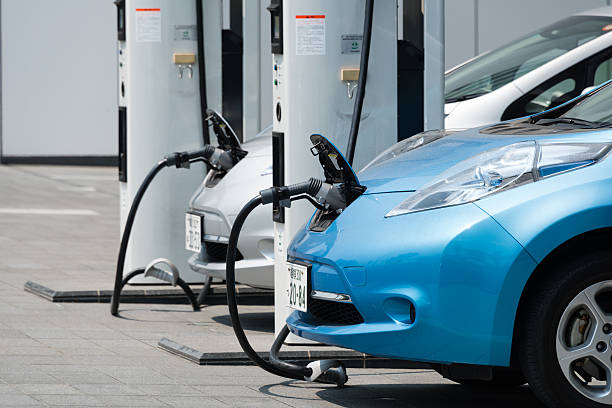How to Choose the Right EV Charging Station for Your Needs
This article provides a comprehensive guide on how to choose the right EV charging station for your electric vehicles or electric cars. It explains the different types of EV stations, including Level 1, Level 2, and DC fast chargers, and highlights their respective charging speeds, installation requirements, and suitable use cases. The guide emphasizes the importance of compatibility between your electric vehicle and charging connectors, including J1772, CCS, CHAdeMO, and proprietary plugs, as well as using adapters when necessary. Location and accessibility of electric vehicle charging stations are discussed, including home installation, workplace charging, and public EV stations, with practical tips on apps and services to find convenient chargers. User reviews and station reliability are also considered, helping owners make informed choices for maintenance, uptime, and customer support. Finally, the article encourages future-proofing your electric cars experience by considering smar
As electric vehicles (EVs) and electric cars become increasingly popular, selecting the right charging station is more important than ever. Choosing the appropriate EV charging station affects convenience, efficiency, travel flexibility, and even the lifespan of your vehicle’s battery. For drivers navigating the growing market of EV stations, understanding key factors such as charging types, speed, compatibility, location, and reliability is essential. This guide will help you make an informed decision to enhance your electric vehicle ownership experience.
Types of EV Charging Stations
EV charging stations are generally classified into three main categories, each designed for different usage scenarios:
- Level 1 Charging (120V AC) Description: Uses a standard 120-volt household outlet. Charging Speed: Adds approximately 2–5 miles of range per hour. Ideal For: Overnight home charging, suitable for plug-in hybrid electric vehicles or light daily use electric cars. Installation: No special installation required; simply plug into a standard outlet.
- Level 2 Charging (240V AC) Description: Requires a 240-volt outlet, providing faster charging. Charging Speed: Offers 10–60 miles of range per hour depending on the car and charger. Ideal For: Daily commutes, workplace charging, and public EV charging stations. Installation: Requires professional installation with a dedicated circuit.
- DC Fast Charging (Level 3) Description: Uses high-voltage direct current (DC) to rapidly charge electric cars. Charging Speed: Can reach 80% battery capacity in 20–30 minutes. Ideal For: Long-distance travel and quick top-ups at public EV stations. Installation: Typically found at public networks due to high power requirements; not suitable for home use.
Choosing the right type of electric vehicle charging station depends on your driving habits, daily mileage, and access to home or public charging facilities.
Charging Speed and Efficiency Considerations
Charging speed is one of the most critical factors when selecting an EV station:
- Time Required: Level 1 chargers are slow, adding only a few miles per hour, while Level 2 and DC fast chargers offer significantly faster rates. Consider how much time you can dedicate to charging.
- Energy Efficiency: Efficient electric vehicle charging stations reduce energy loss, saving electricity costs and minimizing environmental impact.
- Cost of Charging: Public EV charging stations may charge per kWh, per minute, or via subscription plans. Evaluate costs to determine the most economical option for your electric car usage.
A proper balance of speed, efficiency, and cost ensures a seamless experience with your electric vehicles.
Compatibility with Different EV Models
Not all EV stations are compatible with every electric car:
- Connector Types: Most non-Tesla electric vehicles use J1772 connectors, while Tesla vehicles require a proprietary plug. DC fast chargers typically use CCS or CHAdeMO connectors.
- Charging Capacity: Some electric cars support higher charging rates. Choose a compatible electric vehicle charging station to maximize charging efficiency.
- Adapters: When your EV station and electric vehicle use different connectors, adapters can bridge compatibility gaps.
Ensuring compatibility prevents slower charging and protects the battery life of your electric vehicles.
Location and Accessibility
Where an EV charging station is located significantly affects its convenience:
- Home Charging: Installing a Level 2 electric vehicle charging station at home is ideal for daily commuters. Ensure your electrical system can handle the load.
- Workplace Charging: Many employers provide EV stations for employees. Check if your workplace supports electric cars.
- Public Charging Stations: Use apps to locate nearby electric vehicle charging stations. Consider factors such as operating hours, cost, safety, and reliability of the EV station.
Accessible EV stations reduce stress during long trips and make owning electric vehicles more practical.
User Reviews and Reliability
Evaluating user feedback is crucial for choosing a dependable electric vehicle charging station:
- Station Availability: Some EV stations may frequently be out of service. Look for consistently available locations.
- Maintenance: Well-maintained electric vehicle charging stations ensure smooth operation and reliable charging.
- Customer Support: Stations with responsive customer service minimize downtime for electric cars.
Using user reviews helps you identify the best EV station and ensures your electric vehicles remain ready for use at all times.
Future-Proofing Your EV Charging Choices
As the market for electric cars expands, charging infrastructure is evolving rapidly. Investing in a home EV station or selecting frequently updated public electric vehicle charging stations ensures you are prepared for future vehicle upgrades and new charging standards. Look for features like smart charging, app integration, and high power outputs, which enhance convenience and efficiency for your electric vehicles.
Conclusion
Selecting the right EV charging station requires careful consideration of charging types, speed, vehicle compatibility, location, accessibility, and reliability. By choosing a well-suited electric vehicle charging station, you ensure your electric cars remain charged efficiently, supporting daily commutes and long-distance travel. With the growing prevalence of electric vehicles and the expansion of EV stations, informed decisions improve convenience, reduce stress, and optimize your overall ownership experience.
